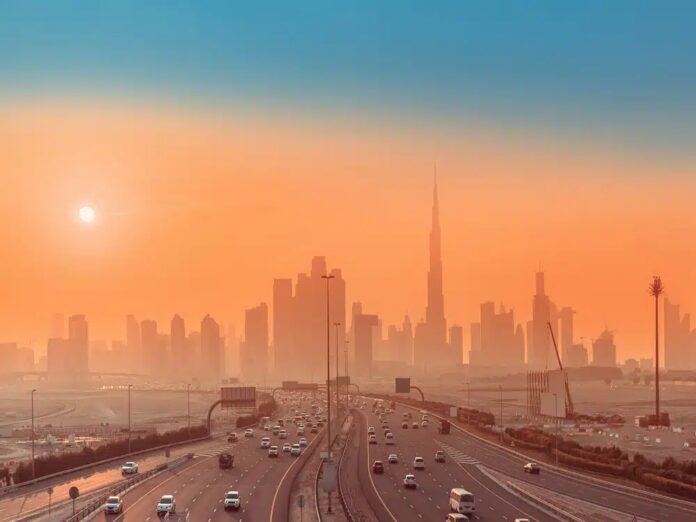The 28th Conference of the Parties of the UNFCCC (COP28) begins on Thursday 30 November 2023 in Dubai, United Arab Emirates (UAE). The annual global climate conference takes place against a backdrop of extreme climate events and increasingly urgent warnings from supranational bodies and the scientific community about the rapidly shrinking window of opportunity for the world to meet the goals of the Paris Climate Agreement. NordSIP will be reporting on the outcomes of the COP28 discussions as they progress. In the meantime, here are our Top 10 areas to focus on from the busy conference agenda.
- The Global Stocktake: these stocktakes are scheduled to occur every 5 years, and COP28 will see the culmination of the first one. This Climate Action “Inventory” process aims to evaluate the world’s progress towards the Paris Agreement targets. Given the recent UNEP Production Gap and International Energy Agency (IEA) reports highlighting the inadequacy of current efforts, it is expected that Nationally Determined Contributions (NDCs) will need to be significantly adjusted during COP28 discussions. Governments will be expected to submit more ambitious national climate plans in 2025.
- Climate Finance: a multi-faceted problem involving the vast amounts of public, private and philanthropic capital required to mitigate, adapt, and compensate for the effects of the climate crisis. In his latest Letter to Parties, COP President Dr. Sultan Ahmed Al Jaber states that developing countries will need $2.4 trillion of annual climate investment in the run-up to 2030. Despite good intentions, wealthy nations failed to comply with the 2009 commitment to provide the developing world with $100 billion per year by 2020. Although this amount has finally been reached in 2023, much more is needed, and the UN is supporting work towards a New Collective Quantified Goal (NCQG) by 2025. Egypt and the UAE have commissioned a High-Level Independent Expert Group to work on climate finance guidelines to be discussed at the World Climate Action Summit, a COP28 side event.
- North / South divide: many of the points of contention in the COP process place the wealthy, developed, high emitting countries against the so-called Global South made up of poorer developing countries that have historically low GHG emissions. The latter are also far more exposed to the damaging effects of the climate crisis. They generally have punishingly high financing costs, hence their urgent need for help with climate finance. This is also the arena for the continuing debate over the “loss and damage” fund, which is intended to redress the historical imbalance and will again be a key part of the COP28 agenda. The prohibitively high attendance costs also mean delegates from developing countries tend to be far outnumbered by those representing the G20 and commercial interests.
- Fossil fuel subsidies: these amounted to $7 trillion globally in 2022, the equivalent to 7.1% of the world’s GDP and a $2 trillion increase from 2020. The International Monetary Fund (IMF) expects these to rise further as fuel consumption grows in emerging markets. The IMF includes implicit subsidies such as the underpricing of climate damage and air pollution costs in their figures. Governments will need to commit to shifting the balance greatly towards renewables as part of the complex restructuring of global climate finance expected at COP28.
- The ADNOC Elephant in the room: although COP events have previously been held in oil producing countries, the appointment of the CEO of the UAE’s national oil company ADNOC as COP28 President has been highly controversial. ADNOC has some of the world’s largest, net-zero busting oil and gas expansion plans in the world under Al Jaber’s watch. It has also been revealed to be continuing with routine gas flaring despite pledge to the contrary, and leaked communication indicates that Al Jaber’s office has been trying to use the occasion of COP28 to organise international fossil fuel deals. It remains to be seen whether he retains any credibility as coordinator of these crucial climate talks.
- The fossil fuel lobby: there has been a growing trend for fossil fuel industry employees or lobbyists to attend COP events, with more than 600 of them estimated to have attended last year’s COP27 in Egypt and effectively outnumbering delegates from the 10 most climate-impacted countries. In an attempt to stem the flow, the UN has said that fossil fuel representatives will have to declare their industry ties, although with some indirect affiliations being hard to determine these measures may not be stringent enough. COP28 must also focus on food and land use, which accounts for over a quarter of global GHG emissions. Along with the production of plastics, the fossil industry is doubling down on its involvement with fertilisers as its seeks to maintain revenues in a world that is transitioning towards renewable energy.
- Downstream solutions: although most COP participant believe the fossil industry should be included in discussions, the oil, coal and gas producers have been criticised for their constant promotion of technological solutions to GHG emissions. It is somewhat encouraging to see the following wording in the COP28 President’s latest Letter to Parties: “Phasing down demand for, and supply of, all fossil fuels is inevitable and essential.” However, the Oil and Gas Climate Initiative (OGCI) is almost entirely focused on Carbon Capture, Usage and Storage (CCUS), Scope 1 and 2 emissions reductions and other technological solutions to support the continued use of fossil fuels for the foreseeable future.
- Nature’s higher profile: the role of ecosystems, natural environments, and biodiversity in climate change mitigation and resilience has risen up the global agenda since Kunming-Montreal’s COP15. This ties in with the question of climate finance and the loss and damage fund. The topic of nature is part of COP28’s Action Agenda, with the International Union for Conservation of Nature (IUCN) among the organisations playing a key part in the discussions. Along with the rights of indigenous people, the protection of nature and biodiversity will be a significant topic at COP28 as the climate and biodiversity agendas gradually converge.
- The power of language: COP events have often been characterised by lengthy debates over terminology, such as the use of “phase down” or “phase out” with reference to oil, coal or gas. The fossil fuel producers are often found using qualifying terms when expressing net-zero commitments. Reference to “unabated” or “operational” emissions can be used to water down COP joint statements and reduce emitter obligations.
- Politics: the attendance – or not – of world leaders at COP events is often controversial. US President Joe Biden and China’s Xi Jinping are expected to send representatives. UK Prime Minister Rishi Sunak declined the invitation to COP27 but plans to attend this time, despite his recent backtracking on the UK’s climate commitments. The politicisation of the climate debate threatens to hinder concerted international climate action, with the election of populist politicians such as Argentina’s Javier Milei jeopardising the consensus. Moreover, environmental campaigners cannot operate freely in the UAE, which officially bans unauthorised protests and prohibits criticism of its rulers. Despite the COP28 presidency’s assurance of a “fully inclusive” COP28, limited permitted demonstrations have been confined to designated areas far from the main event and environmental activists fear surveillance and repercussions.



